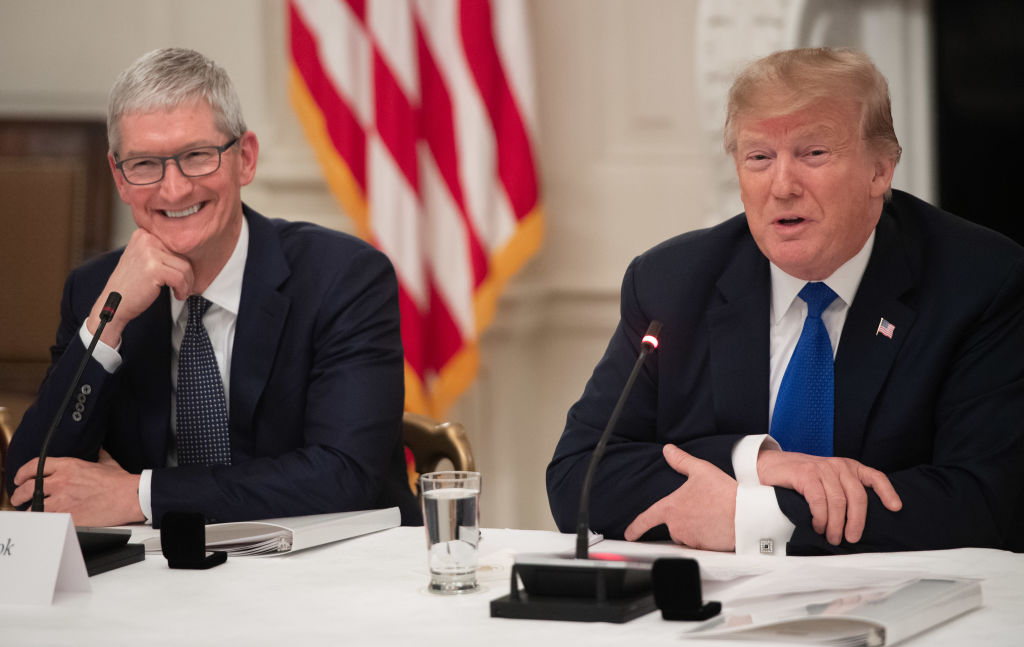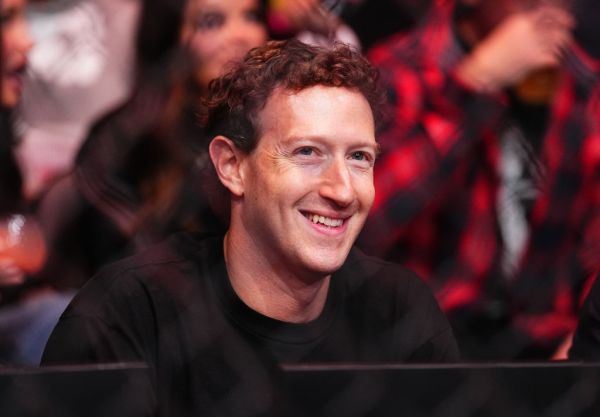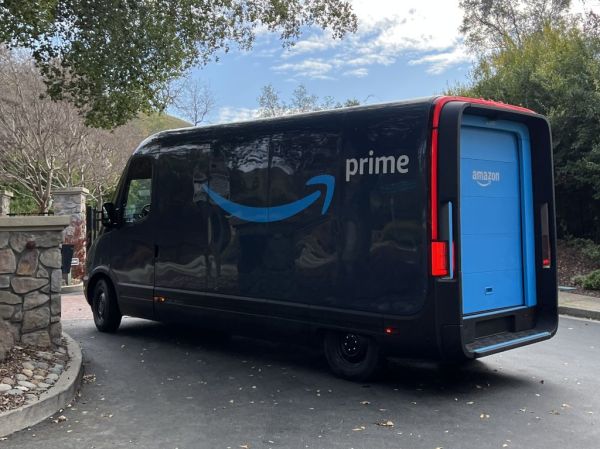The swamp is drained. Long live the swamp?
The cavalcade of tech industry executives prostrating themselves before President-elect Donald Trump has many in Washington wringing their hands about Silicon Valley’s MAGA turn. And there’s certainly evidence that Big Tech is working overtime to cozy up to the new president.
Apple’s Tim Cook is just the latest CEO to donate $1 million to Trump’s inauguration committee. His generosity follows other big checks from companies like Amazon, Google, and Meta and individuals such as OpenAI CEO Sam Altman. Cook, along with Jeff Bezos of Amazon and Meta’s Mark Zuckerberg, are among the many top business leaders who have met or will meet with Trump since his election in November. And of course, the $277 million Elon Musk spent to help boost Trump’s campaign and his subsequent role as the president-elect’s First Buddy all underscore how the tech industry is hustling to secure the most prominent seats at the table during the new administration.
Needless to say, this is hardly the first time corporations have donated to inaugural committees in order to curry favor with a White House. But the obvious ways in which America’s richest business leaders have been ingratiating themselves with Trump, from big, beautiful checks to visits at Mar-a-Lago, illustrate how the influence game will be transformed for the Republican’s second term: making it personal. Using traditional lobbying tactics to try to shape legislation on Capitol Hill or rule-making in the regulatory agencies may be worth less than the cost of sending your CEO to Mar-a-Lago and an exuberant press release about working with the president. The direct appeal approach by CEOs is in part a reflection of the deteriorated relationship between business advocacy groups such as the U.S. Chamber of Commerce and the modern Republican Party—a relationship the Chamber, at least, is looking to repair.
In fact, many of today’s tech execs are waking up to the example set by one of their own, Oracle CEO Safra Catz, during the first Trump term. While a handful of Silicon Valley executives, such as Apple’s Cook and Sheryl Sandberg (then of Facebook) met with Trump after his surprise win in 2016, Catz took it a step further, joining the transition’s executive committee. A veteran donor to Republican presidential and congressional candidates, Catz became a close outside adviser to Trump, dining with him multiple times during his presidency and even being considered for positions within the administration.
That personal relationship certainly didn’t hurt when Oracle was competing with other firms, including Amazon, for the Defense Department’s massive, $10 billion cloud-computing contract. A lobbying strategy that combined lawsuits with stoking Trump’s own fears of a deep-pocketed Deep State conspiracy helped sink Amazon’s bid in 2019, eventually leading the Pentagon to cancel the entire contract. But Amazon later alleged in a lawsuit that it traced the effort to scuttle its bid to a dinner in early 2018 in which Catz “advocated against” giving Amazon the contract.
This time around, the goal for lobbying Trump may be as much about avoiding the new president’s resentment than securing his favor. Or, as one GOP lobbyist in Washington put it, the influx of tech money and support to Trump is akin to buying indulgences as atonement for their past sins.
Consider Zuckerberg, who was the target of Trump’s ire following the 2020 election after the Facebook founder and his wife donated nearly half a billion dollars to nonprofits that awarded grants to improve election administration during the pandemic. In his 2024 book Save America, Trump likened this to election interference, suggested the donations swung the election to Joe Biden, and declared that if Zuckerberg “does anything illegal this time he will spend the rest of his life in prison — as will others who cheat in the 2024 Presidential Election.”
Zuckerberg’s announcement this week that Meta will be jettisoning its fact-checking program, which partners with several news outlets (including The Dispatch) to moderate content on its Facebook and Instagram platforms, has been interpreted as a sop to the incoming president. But the move shouldn’t come as a surprise. The tech exec said in his Tuesday video that “the recent elections … feel like a cultural tipping point toward once again prioritizing speech.” When asked during his press conference at Mar-a-Lago later that day if Meta’s decision was a reaction to Trump’s threats to Zuckerberg in the past, the president-elect responded, “Probably.”
Beyond simply avoiding Trump’s wrath, there are lots of other reasons for tech companies and other corporations to signal they’re willing to play ball. Chief among these will be securing the necessary carveouts and exceptions in the forthcoming tariff regime Trump has been promising. Trump’s transition team has already begun signaling that tariffs will not be “universal” as much as targeting particular industries and products deemed critical for national and economic security. But Silicon Valley executives may be realizing it will take a personal appeal to the president himself to secure the right exceptions. These business leaders may also be recognizing that Trump is serious about enacting a more populist agenda this time.
“You can’t take for granted the crazy stuff won’t happen,” said the GOP lobbyist. “You want to be able to shape that.”










Please note that we at The Dispatch hold ourselves, our work, and our commenters to a higher standard than other places on the internet. We welcome comments that foster genuine debate or discussion—including comments critical of us or our work—but responses that include ad hominem attacks on fellow Dispatch members or are intended to stoke fear and anger may be moderated.
With your membership, you only have the ability to comment on The Morning Dispatch articles. Consider upgrading to join the conversation everywhere.